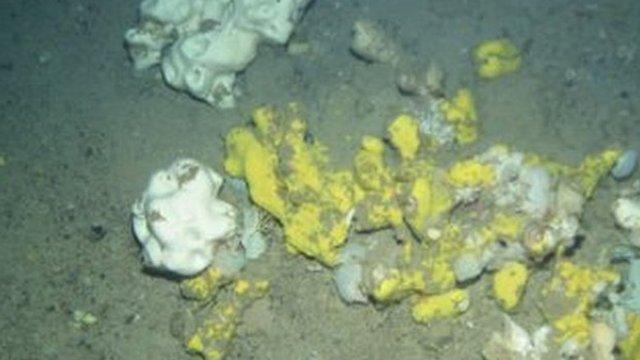'Shocking level' of litter on sea corals off Scotland
- Published
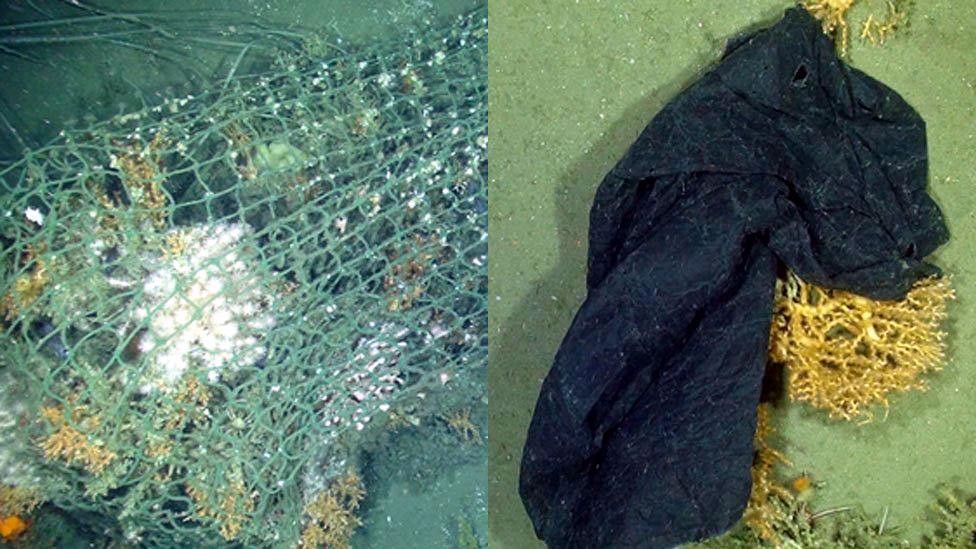
A fishing net and a plastic bag were among the rubbish found in thickets of coral
Rubbish has been found snagged on cold-water corals off the north coast of Scotland.
Plastic bags and lost fishing nets were among the litter spotted during a survey in and around an area of seabed known as the Darwin Mounds.
The sandy mounds lie 1,000m (3,281ft) under the sea about 185km (115 miles) off Cape Wrath in Sutherland.
Scientists said they found a "shocking level" of litter stuck in thickets of coral growing near the mounds.
The rubbish had been carried to the deep sea habitat on strong tidal currents, scientists believe.
They have been making the first study in eight years of the Darwin Mounds, along with a team of engineers, to check on the health of the coral reef and surrounding areas of coals along the seabed.
Among the aims of the work was to check how well corals at the mounds have recovered from damage caused by bottom trawling. The area was closed to this type of fishing activity in 2003 and is a marine protected area.
The three-week expedition also created what is described as the largest continuous visual map ever obtained of the seafloor in UK waters.
Features of the map include the carcass of an 8m (26ft) whale.
Underwater robots were used to investigate the seabed deep under the surface of the North Atlantic.
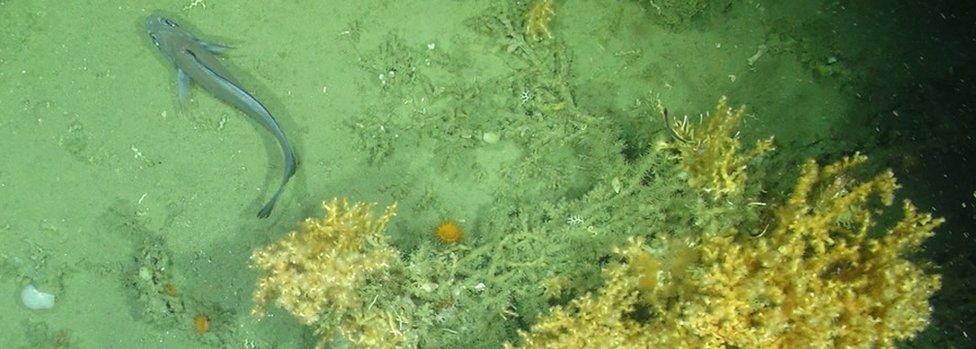
Healthy corals were found during the survey
In places that had been heavily trawled, the scientists said coral growth was still "very sparse" and there had been no real re-colonisation by larvae from undamaged parts of the reef.
But healthy coral growth was found in parts that had only been minimally damaged by bottom trawling.
Dr Veerle Huvenne, from the National Oceanography Centre (NOC), which helped to lead the survey, said: "This proves once again that ecosystem recovery in the deep sea is very slow, and that it is better to put protective measures in place before damage occurs."
She added: "However, encouragingly, settlement experiments deployed in 2011 and recovered on this expedition indicate that new coral larvae can indeed settle in the area."
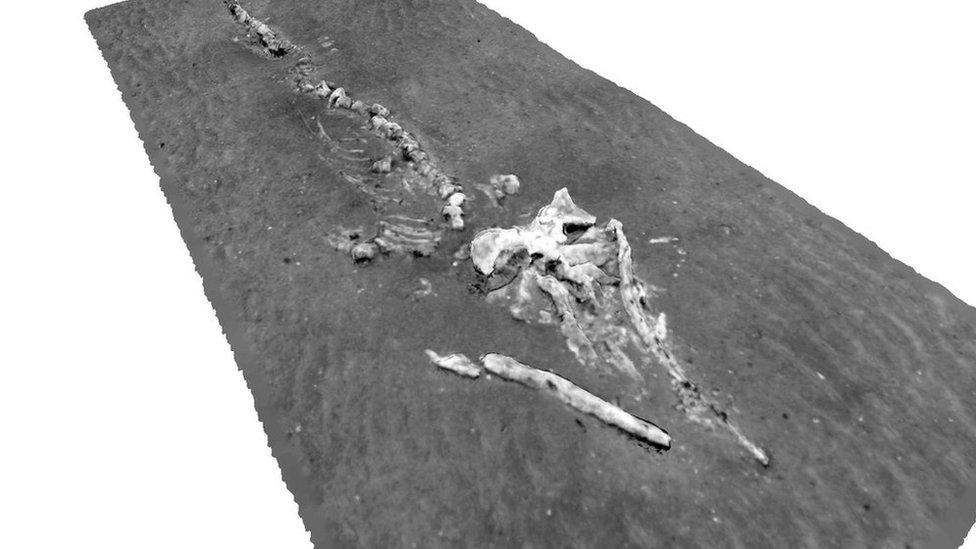
A 3D reconstruction of the whale found on the seabed off the north Highlands coast
Hayley Hinchen, from the Joint Nature Conservation Committee (JNCC), said litter could pose a new threat to the corals.
She said: "The level of litter that we observed across the site is quite shocking, and we still don't know how this is affecting the seabed communities we've seen over the last three weeks."
The expedition was a collaboration between NOC, University of Southampton, JNCC, the University of Edinburgh, University College Cork and Scottish Association for Marine Science at Dunstaffnage, near Oban.
Among the equipment used were a HyBIS Robotic Underwater Vehicle and Autosub6000 underwater robot.
- Published27 September 2019
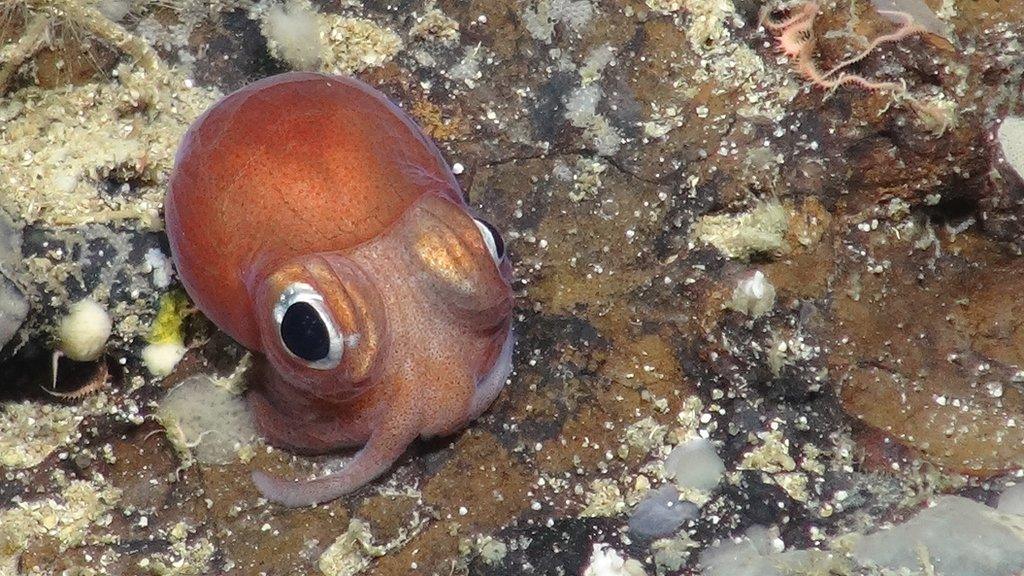
- Published19 September 2019
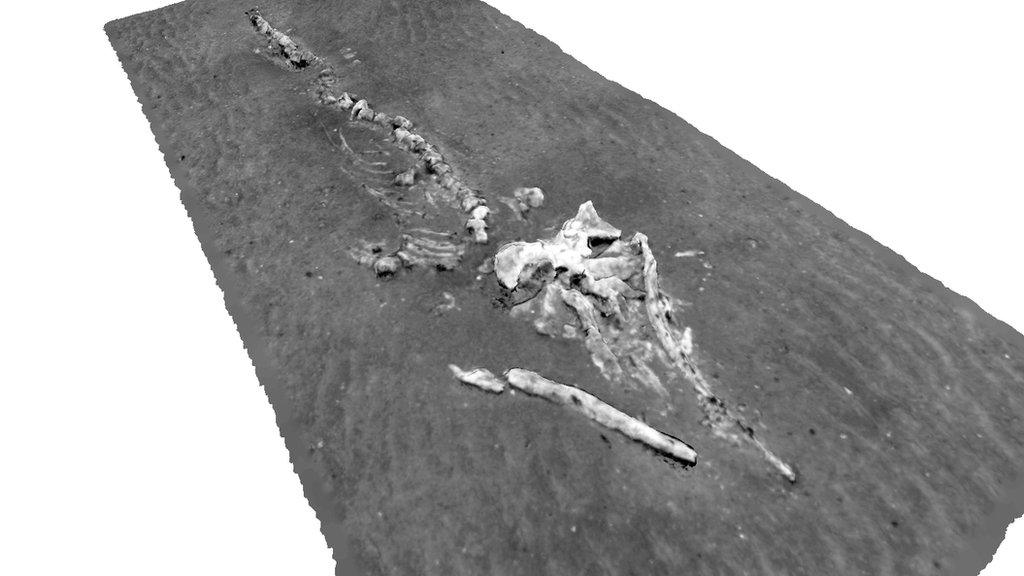
- Published17 September 2019
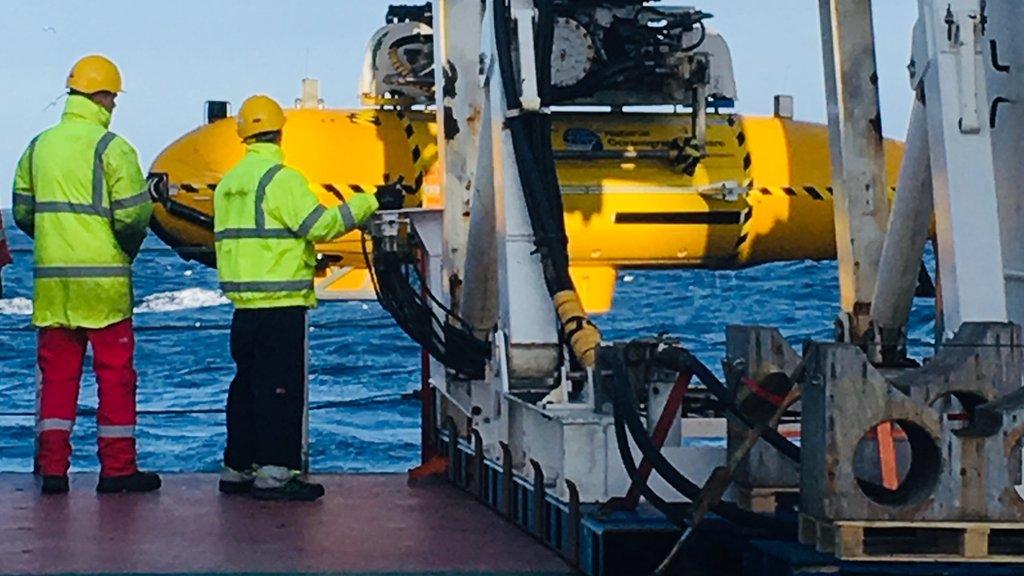
- Published13 September 2019
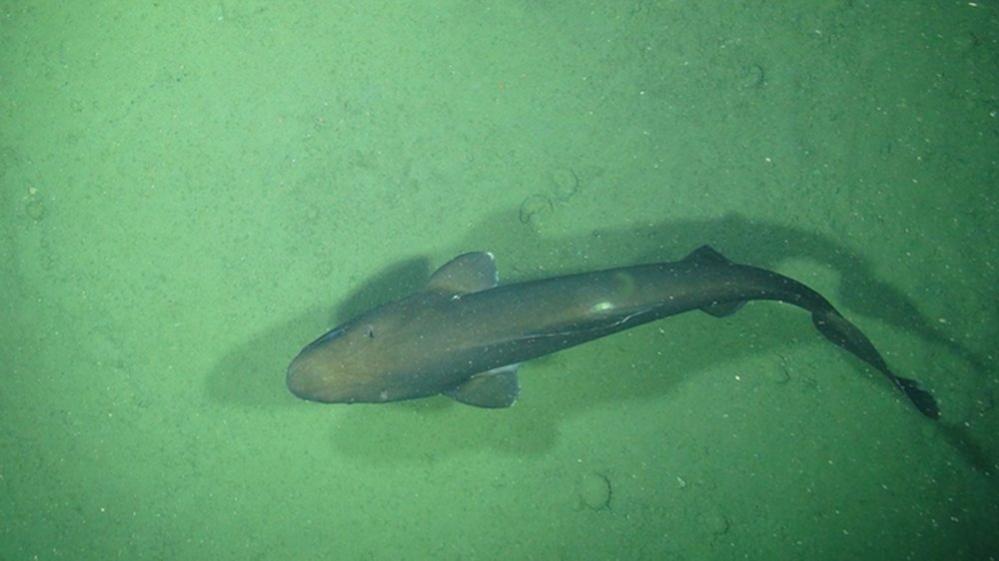
- Published6 September 2019
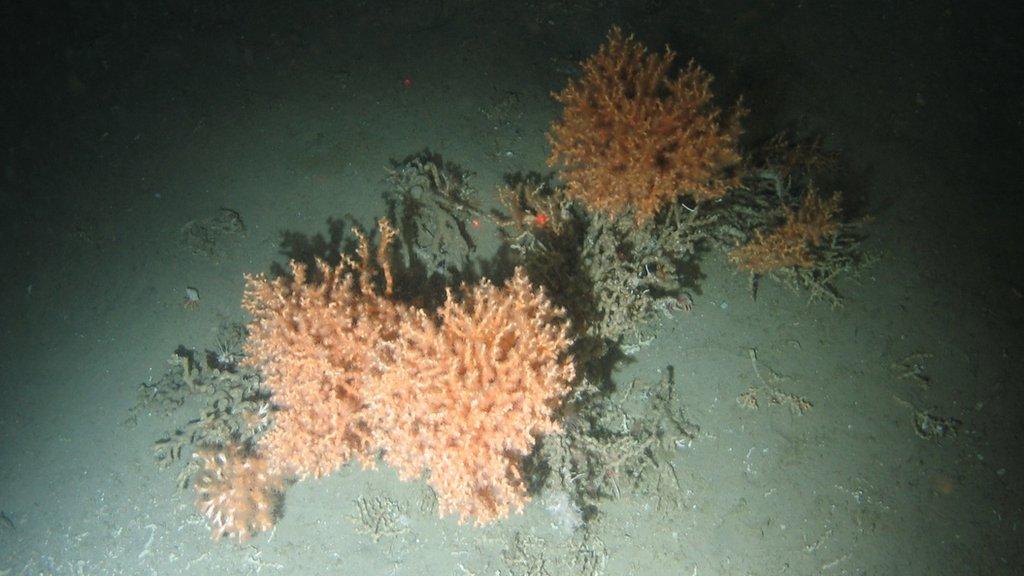
- Published18 June 2019
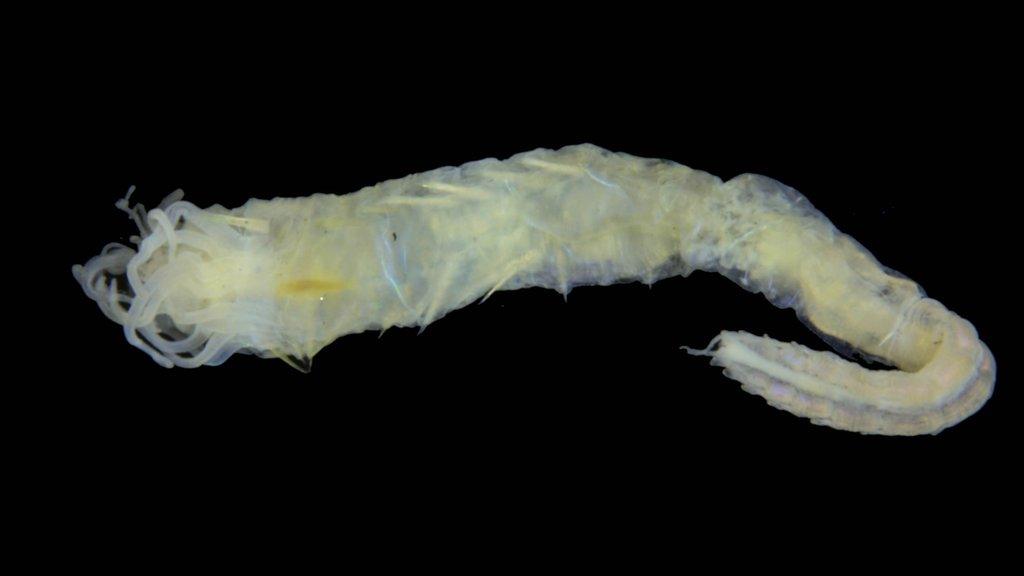
- Published27 July 2018
